A Journey Within and Beyond Holistic Treatment for ADHD
 The term attention-deficit/hyperactivity disorder is a controversial way of conceptualizing a group of behaviors and neurobiological patterns in some children and some adults who struggle with behaving (doing as the authorities tell them in their lives) and focusing (directing their attention to tasks that the authorities in their lives would like them to focus on). As the name implies, ADHD has been predominantly stigmatized and treated as a disease and has been treated with ADHD medication (prescription stimulants like Ritalin and Adderall).
The term attention-deficit/hyperactivity disorder is a controversial way of conceptualizing a group of behaviors and neurobiological patterns in some children and some adults who struggle with behaving (doing as the authorities tell them in their lives) and focusing (directing their attention to tasks that the authorities in their lives would like them to focus on). As the name implies, ADHD has been predominantly stigmatized and treated as a disease and has been treated with ADHD medication (prescription stimulants like Ritalin and Adderall).
Although prescription stimulants have been effective, to a point, in getting wily children to focus and behave, it had also resulted in a generation of children who were predisposed for addiction problems later on in life. Other impairments in neurobiology can occur when stimulants are introduced before the brain had completed its development. The ADHD diagnosis has gained traction since it first started being widely used in the late 90s.
Earlier names for the diagnostic grouping of behaviors existed as early as the turn of the 19th century, where the phenomenon was already given a moralistic slant, applied to children considered “morally challenged,” where the morality in question was demonstrated by their willingness and ability to submit to the authority of their educators. Today the number of children reportedly manifesting the so-called “symptoms” of attention deficit hyperactivity disorder is on the rise. Luckily, the discussion is being had about whether these children are really disordered or merely inconvenient to our existing social order and its main aims.
We have all suffered from social training to reject or subjugate to the authority of reason, our inner authentic, original, childlike, and impulsive self. The part inside who says, “Who says?” and “Who cares?” and asks, “Why do I have to do this?” There is a natural, wild genius part within even the most socialized of us who longs to break free from all the rules, who want to recover from being forced to learn ways of thinking that feel oppressive to our inner, more natural being. Interestingly, studies of ADHD brains indicate an “impairment” in what is called executive functioning.
The executive functioning part of the brain is the one that, like an executive of a company, or the executive of our nation, commands and guides the rest of you. Executive functioning is the part inside you that gets you to behave and do what you are told. To think ahead and not do things that will get you into trouble, to obey authorities. Our society loves executive functioning – direct, targeted, ordered action that kills off anything too original– almost as much as it loves corporate executives.
There is far less value placed, monetarily and otherwise, on those elements of our world that are more intuitive, natural, creative, spontaneous, nurturing, and connective – all the typically “feminine principle” properties of our world. In that sense, people with attention deficit hyperactivity disorder represent the return of that which has been socially repressed since the Industrial Revolution, and probably long before that: the spontaneous, the self-pleasing, the authentic, and the untamed.
Although many ADHD children are treated as though they have developmental delays or retardation, there has been no correlation between IQ and ADHD. Ironically, ADHD is correlated with high intelligence and qualities desired in many creative workplaces. Innovation, adaptability, intuition, and general brightness are qualities that the HR departments of many of our most desirable workplaces increasingly look for due to the rise in the need for creative thinking in the tech world and other expanding industries.
Increasingly, those among us who do not need orders to follow, who are skilled at listening to their inner source of guidance without stopping to apply overly tedious tests of reason, who will inherit the earth. Understandably, parents trying to get their kids out the door and in bed on time, and teachers attempting to get classrooms under control so that they can make them perform to standard at the next state test, pray for children who will be quiet and listen.
Our families and our teachers need love and support. However, the fact that our schools and families are under-supported and isolated, placed under great pressure and criticism without having any resources, kindness, or celebration of their role, is not an argument for stigmatizing the children who do not fit well in it. Our caregivers’ structures are charged with imposing on children are not sustainable and go against the grain of soul. Children with ADHD have been punished for being different than what our society has needed them to be until now.
They have been punished with ADHD medication and with stigma. The education system was developed to instill early values and behavior that were beneficial to the industry’s needs. Industry at the time depended on people doing mundane, repetitive tasks and obeying a centralized authority. Many of these values are still taught – listening to authorities, listening to the wisdom of others instead of your intelligence, and overriding your natural impulses of body, mind, and soul to sit quietly and receive instructions.
Even though these qualities are becoming less crucial, as our collective evolution leads to balancing out our brains and behaviors with more right-brained, now-moment abilities, where ADHD people thrive, many of the children of the ADHD era who are now adults need holistic treatment for attention deficit hyperactivity disorder and/or related support to undo the ill effects of being raised in a context which opposed who they are. Adults diagnosed with ADHD as a child usually suffer impairments in their self-esteem due to having been labeled, marginalized, and treated as being disordered rather than embraced and loved for their differences.
Also, people with ADHD may suffer other challenges because our society currently works well for people whose brains are differently programmed, programmed in ways that people with ADHD literally cannot do without undue strain. Our society turns on the assumption that we will work within arbitrary constructs of time, at a high level of productivity on essentially uncreative tasks, which require attention to detail, and the ability to sustain focus on something inherently boring.
People with ADHD whose brains do not work that way can suffer enormously in a world that rewards and works best with those gifted in executive functioning. This world is a punishing, difficult, non-cooperative place for individuals who are not good at planning, focusing on boring things, and overriding our natural impulses, as nearly everything about our modern life depends on it. People with ADHD have usually been trained to reject themselves and their specialness, as well, instead of seeing their brains as just the way nature intended them to be. Natural remedies for ADHD can work wonders in this dilemma.
Tips on How to Manage Your Day-to-Day Life with ADHD
 Those with diagnoses of ADHD benefit from a gentle, repeatable structure that is firm and fair. Providing repeatable daily rituals and rhythms for children is generally advised where possible, which helps with stabilization and the reduction of new stimuli to contend with. These structures are ideally flexible and reasonable and should be treated like good daily habits and reliable good formulas rather than rigidly interpreted as rules per se.
Those with diagnoses of ADHD benefit from a gentle, repeatable structure that is firm and fair. Providing repeatable daily rituals and rhythms for children is generally advised where possible, which helps with stabilization and the reduction of new stimuli to contend with. These structures are ideally flexible and reasonable and should be treated like good daily habits and reliable good formulas rather than rigidly interpreted as rules per se.
For task management and organization, people with ADHD may benefit greatly from self-tracking and work-visualization tools, as might be used in organizations or planning-based work. Lists, calendars, reminder-setting software, and task-tracking apps can be a great assist.
For children and adults alike, it can be beneficial to practice writing down assignments or to-dos and keeping items in specific places (always in the same spot). Overall many tools that help people stay organized are especially helpful for those with this diagnosis so that they do not go into feeling overwhelmed and stressed related to projects, parameters, expectations, and deadlines.
Educating yourself and your child about the nature of the ADHD experience and learning from others with the same disorder can be very helpful, as can connect with a community of other people with the same experience.
Villa Kali Ma can assist you with natural remedies for your ADHD treatment such as alternative treatments and behavioral therapy. We offer combination therapy of complementary and alternative ways to combat attention deficit hyperactivity disorder ADHD to jumpstart your recovery.


 The term attention-deficit/hyperactivity disorder is a controversial way of conceptualizing a group of behaviors and neurobiological patterns in some children and some adults who struggle with behaving (doing as the authorities tell them in their lives) and focusing (directing their attention to tasks that the authorities in their lives would like them to focus on). As the name implies, ADHD has been predominantly stigmatized and treated as a disease and has been treated with ADHD medication (prescription stimulants like Ritalin and Adderall).
The term attention-deficit/hyperactivity disorder is a controversial way of conceptualizing a group of behaviors and neurobiological patterns in some children and some adults who struggle with behaving (doing as the authorities tell them in their lives) and focusing (directing their attention to tasks that the authorities in their lives would like them to focus on). As the name implies, ADHD has been predominantly stigmatized and treated as a disease and has been treated with ADHD medication (prescription stimulants like Ritalin and Adderall). Those with diagnoses of ADHD benefit from a gentle, repeatable structure that is firm and fair. Providing repeatable daily rituals and rhythms for children is generally advised where possible, which helps with stabilization and the reduction of new stimuli to contend with. These structures are ideally flexible and reasonable and should be treated like good daily habits and reliable good formulas rather than rigidly interpreted as rules per se.
Those with diagnoses of ADHD benefit from a gentle, repeatable structure that is firm and fair. Providing repeatable daily rituals and rhythms for children is generally advised where possible, which helps with stabilization and the reduction of new stimuli to contend with. These structures are ideally flexible and reasonable and should be treated like good daily habits and reliable good formulas rather than rigidly interpreted as rules per se.